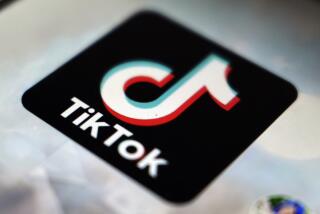CD savings dry up before trickle-down
- Share via
With great fanfare, Universal Music Group last month dramatically cut the prices it charges retailers for its CDs in hopes of boosting lagging sales. But the impact on consumers who go to stores this week to buy the latest hit albums from Jay-Z, No Doubt or G Unit will vary dramatically, depending on where they shop.
Universal, the parent company whose labels include Interscope, Geffen, A&M; and Island/Def Jam, said in announcing the price cuts that it hoped reducing wholesale prices about 25% across the board would level the playing field between traditional record stores and mass merchandisers such as Best Buy, Wal-Mart and Kmart. Those giants now dominate the record business and often are given special discounts because of the huge quantities of music they sell.
But Universal’s price break isn’t always reaching consumers, for a couple of reasons. Some retailers are still selling Universal CDs for roughly the same price at which they sell all their CDs to pump up their profits in a business where, stores claim, they make just a few cents on a CD that sells for $14 or $15.
In other cases, smaller retailers who get their CDs through intermediaries called one-stops don’t get Universal’s discount -- that goes to the one-stop, which may or may not pass it along to the record store owner.
Additionally, while Universal said its discount would be universal -- applying to its new releases as well as the older albums in its vast catalog -- some retailers say it ain’t necessarily so.
“It’s an uneven test,” says Joe Nardone Jr., vice president of the Music Monitor Network, a group of 105 independent record stores across the country. “What I hear is that we’re getting inconsistent cooperation across the industry. Without naming names, a lot of the mall players are not going along with this by reducing the price consumers pay.”
Nardone also is vice president of the 11-store, Pennsylvania-based Gallery of Sound chain, and says his company is aggressively supporting Universal’s discount plan, selling UMG titles for around $10 to $11, compared to $13 to $14 for other labels’ CDs.
“We’ve been called out as a follower of a bad program, but we’re giving it a chance,” he says. The net effect, he adds, is that he’s selling more CDs now, but on average, consumers are spending less per purchase than they did before the discounts took effect.
Nardone says industry executives like to blame the ease of downloading music from the Internet for many of its economic woes, but he suggests that “some days too much is made about accessibility of music and not enough is made about price and what people put on their records.... Nobody wants to admit that nobody is making albums compelling enough for people to want to buy them.”
-- Randy Lewis
More to Read
The biggest entertainment stories
Get our big stories about Hollywood, film, television, music, arts, culture and more right in your inbox as soon as they publish.
You may occasionally receive promotional content from the Los Angeles Times.










